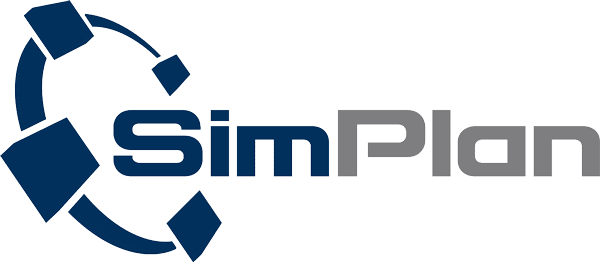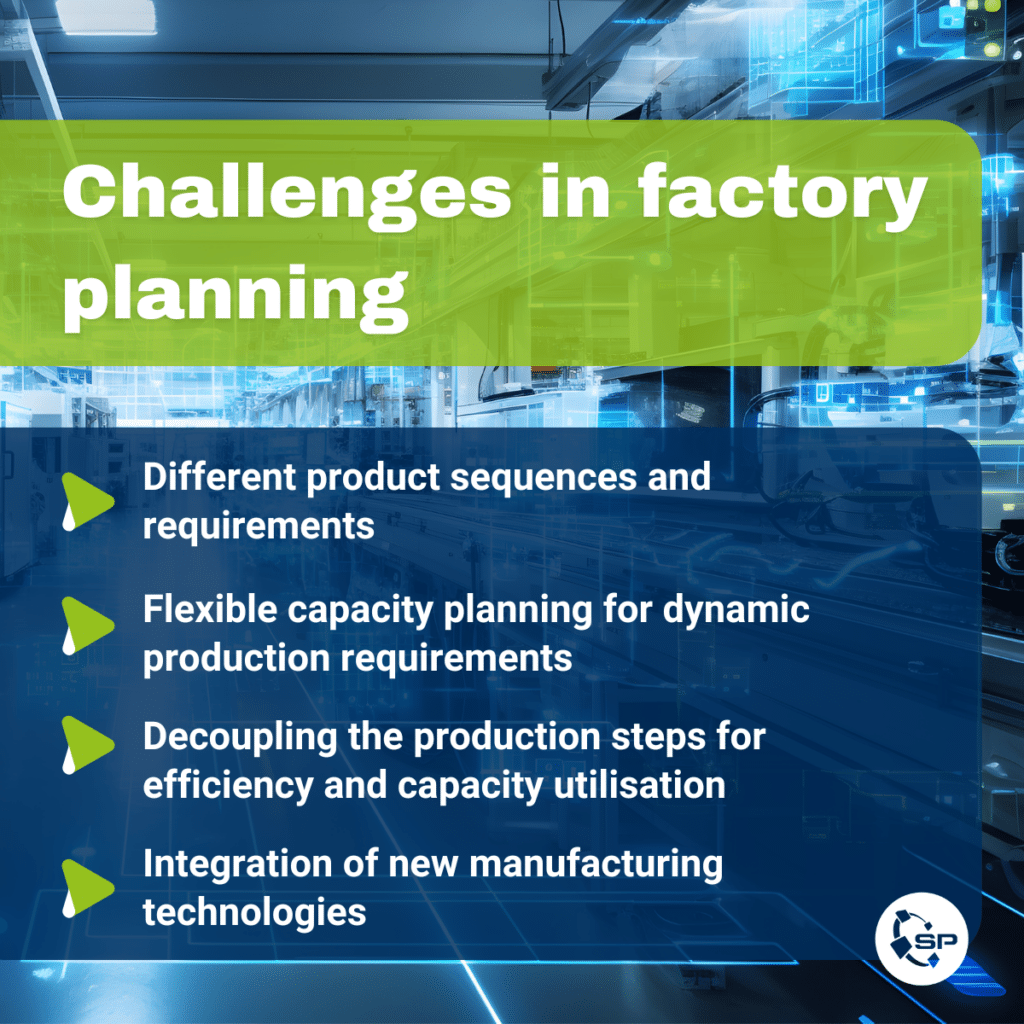
The planning of a factory begins with the definition of the manufacturing process.
In concrete terms: What steps does the production process consist of and how are these steps linked to each other? There are major differences between series production and single-part production, as well as between mixed forms of the two.
Even the abstract sequencing of the required production steps in factory planning presents planners with challenges such as:
- How does one structure production with regard to the fact that different products pass through the production steps in different sequences or do not have to pass through all the steps?
- How much production capacity must be made available in the individual steps, e.g. depending on the production sequence?
- At which points in production must it be possible to expand capacity for future requirements?
- How do you decouple the manufacturing steps to ensure short product lead times on the one hand and high utilisation of machinery and equipment on the other?
- If new manufacturing technologies are to be used, how can they be integrated into the process?
- What is the influence of technology-related interlinking of processes and how can these be optimised?
- Which intralogistic framework conditions regarding transport (e.g. automated with AGVs) and logistics areas (pass-on and buffer quantities) have to be taken into account?
In many cases, factory planning is complicated by dynamic influencing factors:
- For example, if different products with different production contents have to be produced in the factory, the process must be able to manage fluctuations in the production programme.
- Set-up times on machines can vary and should be minimized and optimized by intelligent process control.
- Machines and equipment can break down at times or need to be serviced. These breakdowns must be taken into account in the planning.
- Quality-related rework can occur at different levels.
- Already in the early steps of planning, the rough conception of the production process, simulation can support the planner in important decisions.
Even in the early stages of factory planning, the rough conception of the production process, simulation can support the planner in important decisions.
In contrast to static planning, i.e. planning with fixed parameters, simulation can make the influence of dynamic factors clear.
An example of this is the capacity planning of a machine. While static planning assumes an average technical availability of the machine and takes it into account by a percentage deduction from the capacity, simulation is much closer to reality.
By using random generators, machine downtimes of different lengths are generated, which nevertheless result in the planned technical availability on average. However, the effect of downtimes of different lengths on the overall process often deviates significantly from the planned effects of disruptions in a pure mean value consideration. For example, longer jams may occur in front of the machine or the machine may run without malfunctions for a longer period of time and not be utilised to capacity.
A similar approach is used to design the logistics for an optimized factory. Vehicles are also subject to random disruptive influences like machines and the large number of possible transport orders leads to backlogs, thus delayed transports and therefore supply bottlenecks within the factory.
In addition to concept planning, simulation can also provide important support in the subsequent step, layout planning, in the overall factory planning process.
All important influencing factors can be checked in the simulation model and the planned layout can be verified and optimised. Alternative solutions can be tested under identical conditions and objectively compared and evaluated.
Basically, simulation enables the manufacturing process in the factory to be virtually set up, evaluated and optimised in advance. This means that the commissioning and start-up of a factory are virtually run through in a relatively short time. All the knowledge gained in the process can still be incorporated into the planning process. This significantly increases the quality of the process and avoids the need for any subsequent improvements during operation.

